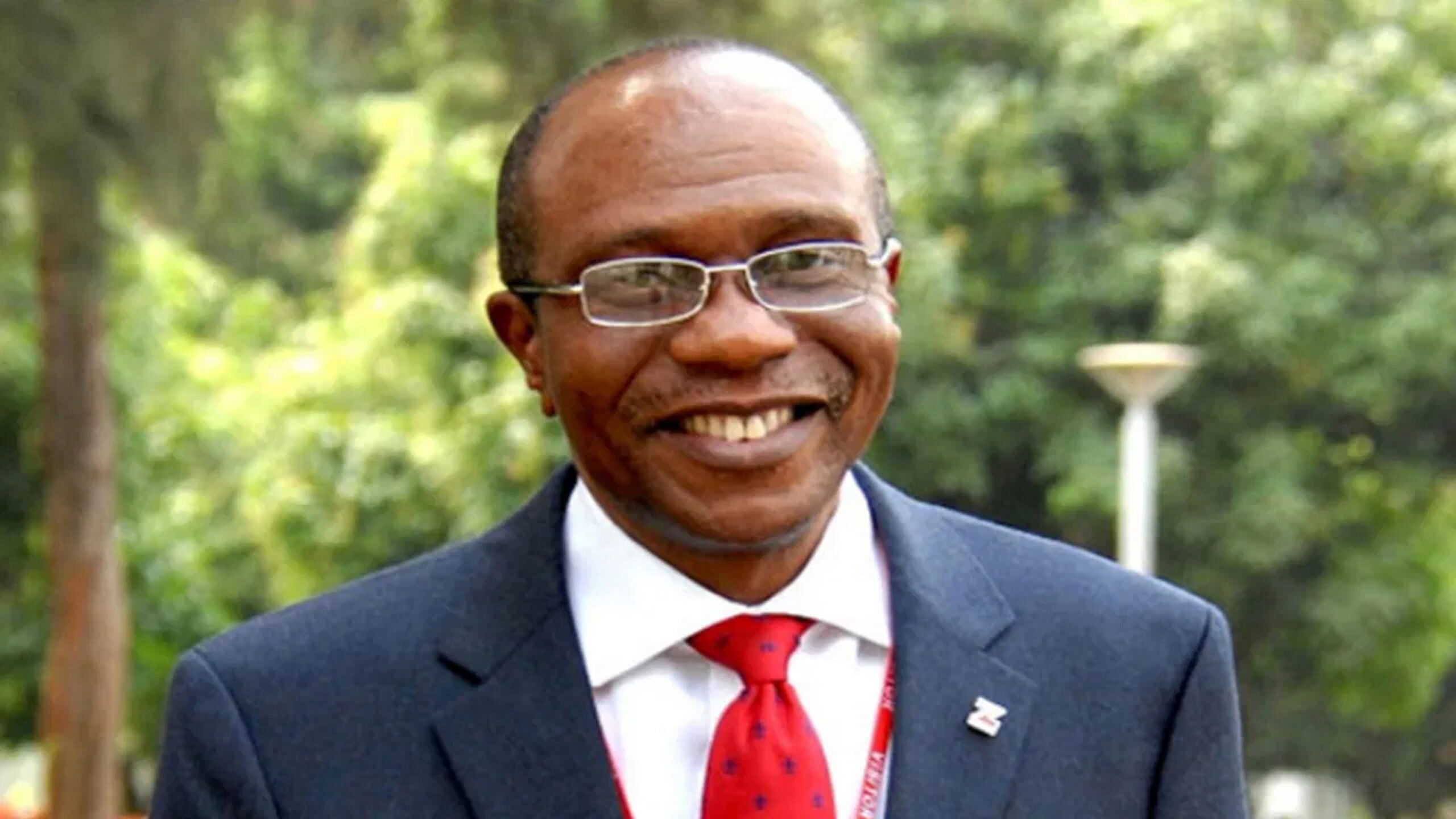Naira and Emefiele’s many reforms
By Khalifa Mahmood The recent launch of the Central Bank Digital Currency (eNaira) marked another milestone in Nigeria’s march towards enhancing its economy ad bringing ease to financial transactions among Nigerians. It is also part of the many innovations of the Central Bank Governor, Chief Godwin Emefiele since he took over more than five […]

Governor, CBN, Mr. Godwin Emefiele
By Khalifa Mahmood
The recent launch of the Central Bank Digital Currency (eNaira) marked another milestone in Nigeria’s march towards enhancing its economy ad bringing ease to financial transactions among Nigerians.
It is also part of the many innovations of the Central Bank Governor, Chief Godwin Emefiele since he took over more than five years ago.
By this singular feat of the CBN, Nigeria has become the first country in Africa and one of the first in the world to introduce a digital currency to its citizens. This is no small achievement, particularly as the country, like other parts of the world, is coming out of the COVID-19-induced recession.
This breakthrough, like many others before it in Nigeria’s financial ecosystem, is a blockchain technology that will add a whopping $2.9 trillion (N1.189 trillion) every year to the country’s Gross Domestic Product (GDP).
What this simply means is that: the country’s GDP will be raised by $29 billion in the next 10 years. This was aptly captured by President Muhammadu Buhari during the launch of the national digital currency.
The eNaira, will among others, help increase remittances, foster cross-border trade, improve financial inclusion, make Monetary Policy more effective and enable the government to send direct payments to citizens eligible for specific welfare programmes.
Financial analysts and economists have said of recent the country has seen several innovations undertaken by the CBN under Emefiele to strengthen Nigeria’s economy.
Indeed, at the launching of the eNaira, the CBN governor also unveiled a new financial instrument christened “The 100 for 100 PPP – Policy on Production and Productivity” to reduce the nation’s overdependence on imports.
Under this policy, the CBN will advertise, screen, scrutinise and financially support 100 targeted private sector companies in 100 days, beginning from 01 November 2021 and rolling over every 100 days with a new set of 100 companies, whose names will be published in national dailies for Nigerians to verify and confirm.
“The purpose of this instrument is to take further steps to reverse our over reliance on imports,” the CBN governor said.
“We believe that if we target and support the right companies and projects, we will see a significant and verifiable increase in local production and productivity, reduction in certain imports, increase in non-oil exports and improvements in the FX-generating capacity of the economy,’’ he said.
In the last few years, the apex bank had introduced many measures to save the naira. Indeed, the CBN has issued at least 21 policies and directives between September 2020 and September 2021 in this direction.
Similarly, in August 2020, Emefiele resolved to go tough on exporters who were guilty of forex non-repatriation. This was another effort to tackle the prevalent forex crisis in the country by increasing forex liquidity. The CBN ordered banks to submit the names, addresses and Bank Verification Numbers (BVNs) of all the exporters who had failed to repatriate their export proceeds, for necessary ‘action’.
When faced with rising cases of forex hoarding and funding of militant and terrorist groups, Emefiele swung to action by taking deliberate, albeit drastic policies in arresting those maladies with catastrophic effects on the security architecture of the country.
In July 2021,Chief Emefiele banned Bureau De Change (BDC) operators from accessing forex, accusing some of them of being conduits for illegal financial flows.
He said the depreciating value of the national currency was partly because of prevailing ownership of several BDCs by the same promoters to procure multiple forex from the central bank.
It is a truism that not all BDC operators are engaged in subterranean operations in their course of doing their businesses. But the fact remains that some enemies of Nigeria are using the unofficial forex windows to perpetrate crimes against the country.
The apex bank, as part of the operation, traced and blocked billions of naira to businesses belonging to persons in banks in a series of ‘post no debit letters.
The CBN governor did not stop there. Despite the political repercussions, the CBN in March 2021, froze 193 corporate and individual bank accounts over allegations of suspicious forex transactions. This was done after 138 accounts were frozen earlier in February.
Not done yet, in April 2021, the CBN investigated and engineered the arrest and arraignment of over 400 persons across the country in an ongoing nationwide crackdown on financiers of Boko Haram and other criminal groups in Nigeria.
All these are Emefiele’s continuous efforts in tackling terrorism and terrorist financing across the country. This alone will hasten the defeat of terrorists as they are starved of funds, hardware, food, weapons and everything.
While working tirelessly to ensure physical security, the CBN under Emefiele is equally bent on reducing unemployment, particularly among the youths.
Just recently, the CBN developed the Tertiary Institutions Entrepreneurship Scheme (TIES), in partnership with Nigerian polytechnics and universities to harness the potential of graduate entrepreneurs (gradpreneurs) in the country.
The goal of the TIES is to enhance access to finance to undergraduates and graduates of polytechnics and universities in Nigeria with innovative entrepreneurial and technological ideas.
Under this policy, the CBN will offer a N500 million grant to graduates, undergraduates with the best entrepreneurship pitch across the tertiary institutions.
These and other measures, including the Anchor Borrower Programme, which boosted rice production in Nigeria, are measures that would enhance the economy and security of the country.
There is no gainsaying repeating the fact that Emefiele is playing a crucial role that is shaping almost all the spheres of our human lives, irrespective of our economic status and whether we live in cities or in villages.
Mahmood wrote from Katsina
